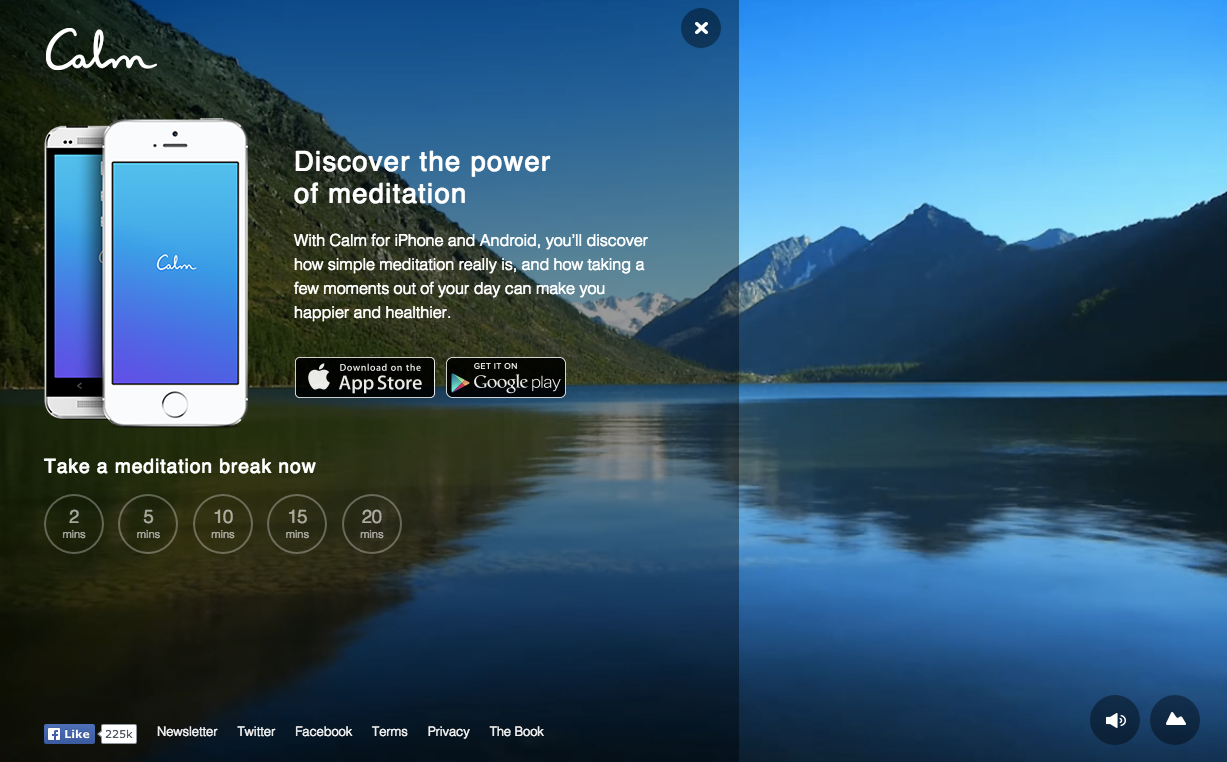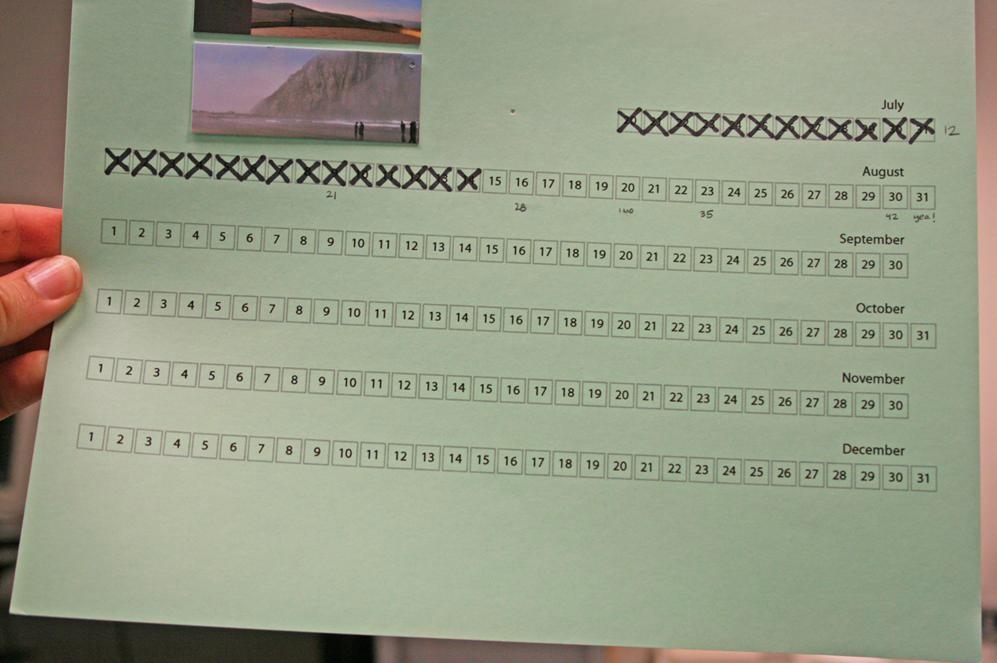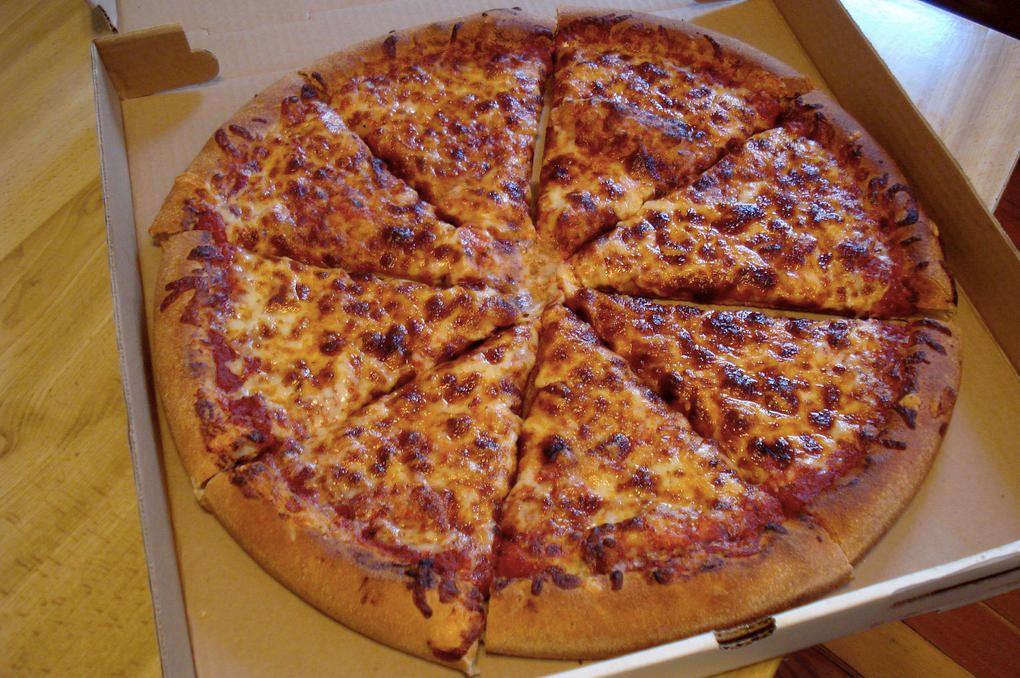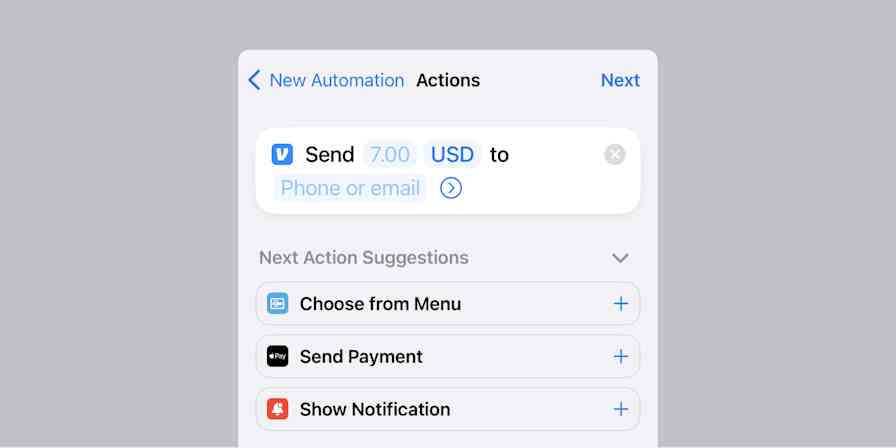Raise your hand if you can start working immediately whenever you want, never get tempted by junk food, always stick to your diets and exercise routines, and never get distracted by social media or email.
No? Me neither. But I've learned something that helps a lot.
It's all about our willpower, the part of our mind where we decide on actions to take. Any time we're trying to do something that goes against our impulses, habits, or desires, we're using up some of our willpower.
The philosopher Plato first described our internal willpower struggle around 400 B.C.E with the allegory of the chariot. In the driver seat, you have the rational mind with a certain amount of willpower, and the chariot is pulled by two horses representing our spirited energy and our desires. The charioteer can guide the horses for a while, but if he fights them for too long, or is too weak, the horses will eventually take control of the chariot and go against our rational desires.
So it is with our minds: if we fight our desires for long enough, our rational mind will tire and we'll lose the willpower needed to do what our rational mind wants. Staying productive, managing our impulses, and making any change we want to in our lives is all about strengthening our chariot driver and making sure we can steer our energy in the right direction. To do that, we must build up our willpower.
Willpower: Your Most Important Mental Resource

At its core, willpower is your ability to get things done. It determines how easy it is for you start working, resist junk food, or go to the gym, and thus is instrumental to success in every area of life.
Think of willpower as a muscle: it's something that you can flex and relax as you need to, strengthen with training, and lose if you don't use it enough. And, like a muscle, willpower tires when you use it repetitively throughout the day.
This was shown in the radishes and cookies experiment, where scientists brought in participants who had skipped a meal and asked them to do one of three things:
Eat radishes, but avoid eating cookies
Eat cookies, but avoid eating radishes
Just do nothing (i.e. participants weren't shown either food)
Afterwards, subjects were asked to solve an impossible geometric puzzle. Participants who had eaten the radishes while resisting the cookies gave up much more quickly than those who got to eat cookies or weren't shown food. Why? Because they used up their willpower resisting the cookies, and couldn't use it on the puzzle.
If you're reading this and thinking "I'd cave and grab the cookies; I'm just weak-willed," don't worry: science has also shown that willpower is something you can train. Like weak legs, willpower can be fixed with exercise and training.
With disciplined practice, we can build up the willpower to take on feats like going without food for five days.
Two Keys to Improving Your Willpower
Get more willpower - To strengthen your muscles, you provide them with stimuli that push them to their limits, and when they heal they're slightly stronger. Do the same for your willpower through taking care of your health and disciplining your mind, and your willpower will get stronger, as well.
Reduce the need for willpower - Think of this like using a forklift to help you lift the barbell. Strong muscles are great, but why tire them out when you can get the same result with the right tool? There are similar tricks that you can use to decrease the amount of willpower that you need on a per-task basis.
So if you want to kick your self-control up a notch, read on. And by the end of the article, you'll have the toolset you need to develop an iron will.
How to Get More Willpower

Most of us are weak-willed. We're experts at finding vices: social media, junk food, our phones, you name it. Try getting through your next meal without checking your phone—it's harder than you'd think.
When you're constantly stimulated, you don't feel the need to develop strong willpower. But then, when you need to do harder tasks like losing weight, putting on muscle, starting a company, developing a new skill set, changing careers, or joining the circus, you may not have the willpower to complete the arduous road ahead.
So how can you develop a will of steel that that helps you work your way through the toughest tasks? Simple: pay attention to your mental and physical health.
1. Good Diet and Health
Your brain is an organ—the most complex, needy organ in your entire body. If your body is unhealthy, then your brain is unhealthy, and poor brain health leads directly to weaker impulse control.
The most obvious outward sign of this is a simple indicator like Body Mass Index. Having a high BMI, or being overweight, comes with blood sugar fluctuations that leave you feeling sluggish. That means you'll have a tougher time getting started on your work and persevering through a task.
Note: Since BMI only measures your ratio of weight to height, it won't give reliable measurements to people with a significant amount of muscle mass. Don't treat it as an end-all-be-all.
Your weight's not the only health factor that affects your willpower. Deficiencies of micronutrients like vitamin D can negatively impact cognitive performance, as well. That's why it's important to eat healthy: you'll keep your weight in balance, have an ample supply of vitamins, and get a willpower boost, too.
2. Exercise
Just like a healthy body leads to a healthy brain, having an active body leads to a more active brain. When we're inactive, especially when we're sitting for long periods, our musculature starts to shut off and our brain shuts off with it.
This is part of the reason that using a standing desk can have such a beneficial impact on productivity. It keeps your leg and back muscles engaged, and the blood flow from an active musculature supports healthy brain functioning as well. At the very least, it's worth it to stand up every once and a while and move around.
You don't need to be a marathon runner or a power-lifter to make strides in your physical fitness—you just need to be _active._The simplest way to do that is to incorporate activity into your daily schedule.
Try to walk at least 10,000 steps a day, take the stairs if you're going up less than five floors, and stand instead of sitting when you can. Do whatever you need to do to keep your body engaged. General activity is the best kind of exercise for keeping your willpower topped off all day.
And if you ever feel like you're completely burned out and can't push through your work, go for a walk! You'll be amazed at how good you feel five minutes later.
3. Sleep
To reach peak willpower levels, you'll need to combine diet and exercise with a good night's sleep.
Being sleep deprived—defined as sleeping for less than 7 to 8 hours per night—puts you at the same level of mental functioning as someone who's drunk, which is virtually synonymous with having absolutely no willpower.
Even though you might "lose" an hour or two by sleeping a full 7-8 hours per night, you vastly increase your productivity by having your willpower at its peak. Even one day of sleep deprivation will poorly impact your willpower.
4. Hydration
This is the last health-related method, I promise.
Everyone knows water is important, but it's more important to your willpower than you might think. Even a small amount of dehydration have a massive impact on your cognitive functioning.
The bare minimum amount you need is two liters (8 glasses), but if you aim for that amount you might come up short.
Instead, shoot for a gallon of water per day. You'll feel amazing. And, as a bonus, your skin will look better, and you'll be less hungry.
5. Meditation

According to Dr. Kelly McGonigal, author of "The Willpower Instinct," meditation is the best way to improve your willpower (once you have your health covered).
Willpower is all about your ability to focus your mind on the task at hand, to reign in your distracted brain. Most of us are terrible at this, thanks to the constant nagging of our phones, laptops, and social media.
Meditation, whether you practice mindfulness or transcendental, trains your mind to return its attention to one small thing—it could be your breath, a point in your body or a mantra.
If you can sit in silence and focus on something as simple as your breath, then you can much more easily focus on your work despite the world of distractions around you.
Moreover, meditation trains you to become a third-party observer of your emotions, so instead of getting immediately swept up in anger, temptation, frustration, or any other emotion that would prevent you from doing willful work, you see yourself experiencing that feeling, and allow it to pass, returning yourself to your main focus.
If you're not sure how to start meditating check out apps Headspace or Calm, or the "Everything you need to start meditating" guide by Chris Bailey from "A Life of Productivity."
6. Practice
I've alluded to this, but the simplest way to improve your willpower is to test it. Just like lifting a barbell strengthens your arms, pushing through a problem will bolster your willpower.
The cool thing is that this doesn't have to be huge, arduous tasks: any amount of stress on your willpower will strengthen it. Resisting that dessert after dinner? +10 to willpower. Going to sleep instead of watching another episode of "Friends" on Netflix? Willpower reps. According to Dr. McGonigal, even something as simple as opening a door with your non-dominant hand or consciously avoiding swear words will strengthen your willpower.
Any time you act contrary to your habits and instincts, you're improving your willpower.
How to Reduce the Need for Willpower, and Manage What You Have

Having a lot of willpower isn't enough on its own, though. It's like driving a motorcycle: you might have a huge engine and a full tank of gas, but if you jet down the highway like you're in a The Fast and The Furious movie, the gauge is going to hit "empty" pretty quick.
That's why you also need to develop good systems for managing your willpower. You could throw tons of willpower energy at a task, but why do that when you don't have to? These next sections show you how to use a fraction of your willpower for each task, so you can store some for later.
1. Break It Down
One of the biggest detriments to your willpower will be looking at a massive task or project you need to get done, and being intimidated by the scope. The same goes for personal change. If you say "I'm going to lose 20 pounds", that's a huge goal that could take over a month.
But when you break down your goal into much smaller parts, like "write one paragraph of the blog post," or "lose five pounds," then any big project becomes more approachable.
The scarier and more intimidating a task is to start, the more willpower it's going to require. If you can break that task into manageable chunks, it'll be easier to get started. Then, when you finish that first small part, just start on the next one.
2. Make It a Habit
According to Charles Duhigg, author of "The Power of Habit," around 40% of our daily actions are habits. That means that we're not consciously deciding to do the things we do, we're just doing them because we'd trained our minds and bodies to act a certain way in a certain situation.
This is a good thing, for the most part. Imagine if every time you got into the car you thought "Okay, take off parking brake, put on regular brake, turn the key, look back, look left, look right, switch to reverse…" you get the idea. We wouldn't have time to think about anything else!
But there are certainly bad habits, too. Maybe whenever your alarm clock goes off, you hit snooze. Or whenever you're getting lunch at work, you get a cookie to go with it. Do these things frequently enough, and you'll stop thinking and just do them on autopilot.
Good habits, on the other hand, help you preserve willpower. For example, if you schedule time for a workout every day, then you don't need to think about getting yourself to go. Once you go every morning at 8 a.m. for a week, you'll start going automatically and won't need any willpower to leave the house.
Or you could create a habit where, every time you get to work, you immediately sit down and spend 25 minutes on your most important task before talking to anyone or checking email. Once you diligently do this for a few days, it will just be your natural thing when you get to work.
Think about your frequent tasks that require willpower, then see if you can create a habit to make them happen automatically. Once you have a habit you want to try to implement, use an app like Beeminder to help you commit to it. Having some money on the line will keep you much more accountable.
You can even connect Beeminder to Zapier, an app-automation service, to tie your goals to the apps you use most and check off goals automatically as you finish work in your apps.
Complete all your todos with Todoist and Beeminder
Complete billable hours per week goal with Harvest and Beeminder
Hit your photos taken goal with Dropbox and Beeminder
Meet your reading goal each week with Feedly and Beeminder
Beat your weekly sales goals with PayPal and Beeminder
3. Avoid Bad News
Unhealthy bodies foster unhealthy minds, and an unhealthy mind has much lower willpower. A sad or stressed mind has much lower willpower, too, which is why it's important to be careful about the information that you're taking in.
If you read too much scary news (which, let's be honest, is redundant), the stress that comes from thinking about homicides, bombings, or downward market shifts will result in having less willpower throughout the day. Even looking through pictures of a more successful friend's Caribbean vacation can decrease your drive.
The easiest solution is to avoid bad news that doesn't directly apply to your decision making. If your website is down, you should obviously know about that. If you're a broker, market swings are definitely worth paying attention to. But for most of us, the latest murder story is just going to bring you down.
4. Create a Supportive Willpower Environment
The less you need to use your willpower, the more of it that you'll have. Creating an environment that reduces your need to use any willpower can maximize your ability to work on important tasks.
If you have a candy bowl on your desk, or even snacks right outside your office, then every time you're looking at that food and resist eating it, you're using up a bit of your willpower. If you have notifications on your phone, trying not to glance at them them when you hear the beep is using up your willpower. Looking at pictures of tempting food can lower your willpower.

Even having internet access can lower your willpower. It's certainly harder to focus on writing this article knowing there might be something really important that someone just tweeted. That's why Jonathan Franzen has said "it's doubtful that anyone with an internet connection at his workplace is writing good fiction."
To optimize the willpower at your disposal, create an environment that supports it. Use an app like RescueTime to block distracting websites when you need to focus, and try using the Pomodoro technique to keep yourself in the zone for at least 25 minutes. And if you have any tempting food, games, or books nearby, get them out of your field of view so you don't need to resist them.
If you choose RescueTime to track your productivity, you can also pair it with Zapier to export your activity and trigger notifications about your progres.
Add new rows to Google Sheets with daily RescueTime summary reports
Create a RescueTime highlight when a Trello card is moved
Create a Trello Cards when more than 1 hour of uncategorized time is logged in RescueTime
5. Pre-commit
Until you have a habit in place, pre-commitments help you complete tasks while minimizing the willpower costs.
The way it works is simple: just create a rule in your head, saying "when this happens, I will do this thing." For example, "when I get to work, I'll immediately spend one hour burning through my email backlog." Or "when I wake up, I'll immediately put on my clothes and go to the gym."
Rules like this make it much easier to overcome willpower challenges, since telling yourself "when this happens, I'll do this" takes less mental energy. Plus, when the first thing happens, you'll be inclined to keep to your word since psychologically we try to avoid cognitive dissonance. Essentially, we hate to go back on our word.
So when you need to do something that you know you'll have a hard time getting yourself to do, just chain it to something else—it will make getting started much easier.
6. Know Your Rhythms
Finally, stay self-aware and figure out what times of day you're at your best, and when you need a break.
We all have a circadian rhythm that regulates our sleep. It tends to make us the most tired around 2 a.m., but it also creates a dip in energy around 2 p.m. in most people. If that's the case for you, then schedule your simpler tasks for your circadian "dip," so you don't burn yourself out.
We also all have an ultradian rhythm, which regulates our energy on shorter cycles throughout the night and day. Essentially, every 90 minutes our minds go through a cycle from peak high alertness to low alertness. If you're working at your peak in the cycle, then you're most likely being effortlessly productive.

But trying to work at the trough is a struggle, and could quickly burn up more willpower than necessary. Try focusing for 60-90 minutes, then taking a 15 minute break when you can feel the fatigue setting in. You'll come back feeling refreshed and productive.
Maximize Your Willpower
If you're ready to start implementing the knowledge in this article, here are the easiest first steps:
Identify which health aspects you could improve to give yourself more willpower, like your weight, sleep habits, and exercise levels. Just start with one! Don't try to fix everything at once.
Check out Headspace, Calm, and Chris Bailey's intro to meditation. You'd be amazed at how training your mind to focus in silence translates to better productivity at work.
Look for small tasks throughout the day that you can do that push your willpower.
Assess your work environment for willpower drains and temptations. What can you hide or get rid of so you're not forced to resist it? And download an app like RescueTime to take care of blocking distracting sites.
Keep a notebook, or use RescueTime, and see when you're at your least productive and lowest energy throughout the day. Having that timeframe in mind will help you avoid scheduling your most stressful work at a time when it will burn you out
Keep looking for new habits that you can build, and pre-commitments you can make that will help you get things done!
Finally, let me know your biggest willpower challenge in the comments, whether that's staying focused on the task at hand, avoiding junk food, going to the gym, or anything else! I'd be more than happy to respond with some ideas for things you can try to make them require less willpower to work through.
Credits: Weightlifter photo courtesy Official U.S. Navy Page. Cookies photo courtesy Alejandro C on Flickr. Phone notifications photo courtesy Jaysin Trevino. Pizza photo courtesy The Pizza Review. Calendar photo courtesy emdot on Flickr.





